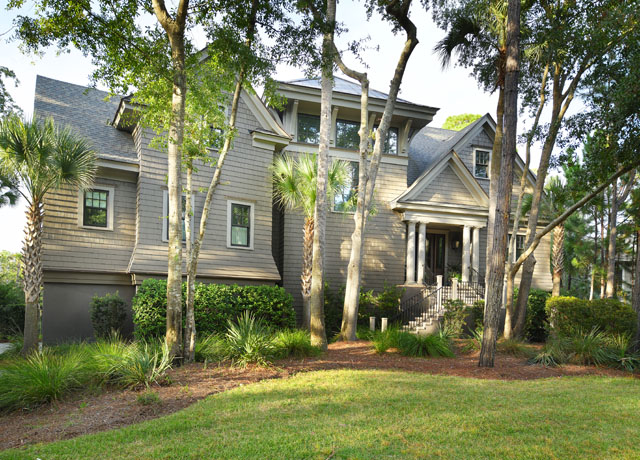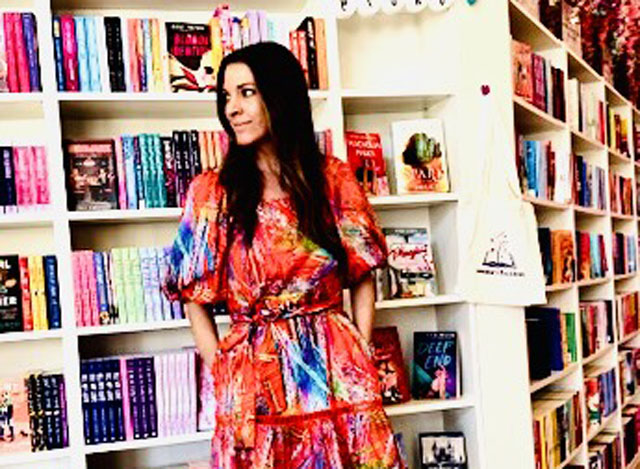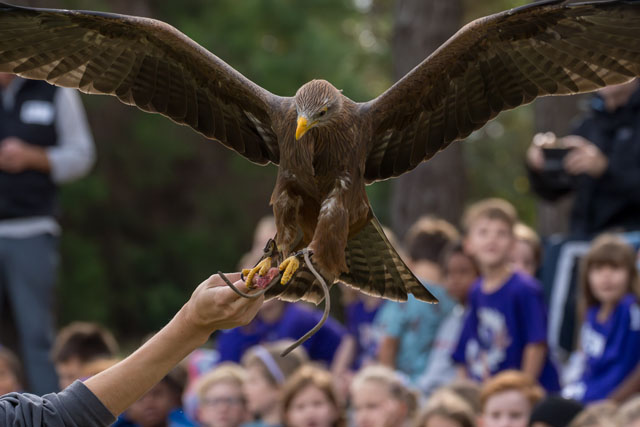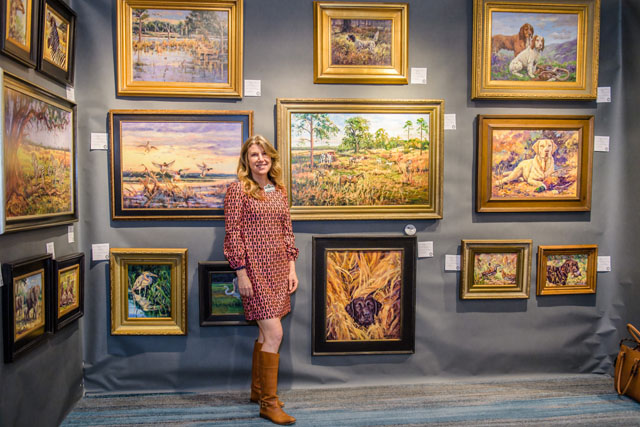Coffee Talk
02 Nov 2023
Passionate coffee roasters percolate across the Lowcountry
By Daria Smith
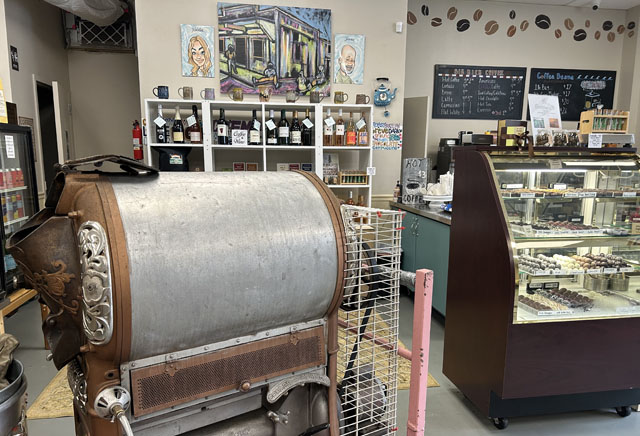
A cup of coffee brings people together to sit down to discuss important decisions and events. Likewise, coffee is a relationship-centric business amongst roasting facilities and cafes. The Lowcountry abounds with local coffee roasters as the coffee climate percolates around the region. Over the past decade, novice and seasoned roasters have multiplied in Charleston and now include Charleston Coffee Roasters, Second State Coffee, Big Kick Coffee, King Bean Coffee Roasters, Highfalutin Coffee Roasters and Estuary Beans & Barley. As these roasters explain, roasting coffee is a divine art and an intricate science and art form from bean to cup.
Coffee is similar to wine in that several principles affect its profile—soil, altitude, temperature, farming practices, varietals, etc. Coffee is best grown in remote tropic regions with moderate rain and plenty of sun between the Tropic of Capricorn and the Tropic of Cancer— cultivation in North, Central, and South America; the Caribbean; Africa; the Middle East; and Asia. Coffee trees yield green cherries, which turn bright red as they ripen. Each cherry pit houses a few coffee beans. Four thousand beans yield one pound of roasted coffee and harvesting coffee beans is no simple feat.
Once the beans are delivered to Charleston roasters, heat is applied to beans, transforming them from a grassy state to a deep, rich, and complex roasted composition. A roaster must master the art of listening, smelling and watching as the beans are brought to life, delivering the bean’s distinct regional characteristics. The secret to roasting coffee is patience—this process can’t be rushed.
Charleston Coffee Roasters
Lowell Grosse founded Charleston Coffee Roasters in 2005 on a mission to roast coffee that reflects Charleston’s originality, concern for the environment and attention to quality. Charleston Coffee Roasters is dedicated to supporting sea turtle conservation and uses our native loggerhead turtle designed from a coffee bean as a logo. They partner with the South Carolina Sea Turtle Rescue Program and local aquarium to support the cause.
The business is predominantly wholesale, sold at Costco, Target, Ingles, Harris Teeter and Whole Foods locations across the country. Because Charleston Coffee Roasters is such a large operation, beans are purchased from distributors who act as the middlemen between sustainable farmers and roasters.
Charleston Coffee Roasters purchases beans in 2,000-pound bags from six main regions: Columbia, Mexico, Sumatra, Guatemala, Peru and Honduras. However, current micro-blends include beans from Papa New Guinea, Costa Rica, Tanzania and an Ethiopian Yirgacheffe. It’s unusual for such a large roaster like this to dip their toes in the specialty coffee scene, but small batches yield a more flavorful cup.
On average, Abby Reynolds, lead roaster, roasts 15,000 pounds of beans per day in small batches, relying on her five senses and attention to detail. As soon as beans leave the semi-truck, she roasts a few small samples to test the quality. Beans filter through feed containers into colossal roasting machines.
Reynolds manipulates the energy, heat and air within these complex roasters to alter the coffee profiles and flavors. Once roasted, beans are blended immediately and then packaged for optimal freshness. Each grocery store that sells coffee opts for packages of blended or whole-bean coffee depending on their customers’ preferences.
Reynolds’ favorite blend is Espresso Medium, also known as the Loggerhead Sea Turtle blend—Colombian, Mexican and Guatemalan coffees are blended together in a sweet medium roast. It’s incredible as a cold brew, espresso, or in a French press.
While Charleston Coffee Roasters has tossed around the idea of opening a brick-and-mortar, they are currently focused on wholesale and online sales. Follow along on Instagram at @charleston_coffee
Second State Coffee
Across four locations in Harleston Village, Mount Pleasant and West Ashley, Second State Coffee is on a mission to make conversations around coffee approachable for coffee connoisseurs and newcomers.
Lifelong friends Jayme Scott and Ross Jett left their corporate careers in California and Capitol Hill to open the Beaufain Street location, formerly Black Tap Coffee, in February 2012. Visiting new cafes around D.C. was the highlight of Scott’s day and Jett drew inspiration from innovative shops around San Francisco and L.A.
“We always fantasized about what we liked and what we'd do differently if we opened our own coffee shop,” Jett said.
Two years in, the duo realized Charleston lacked a specialty-grade coffee roaster. They opened a roasting facility on James Island, creating 6-10 different blends that they stock in their shops. Second State is meticulous with its roasting process, sourcing only specialty grade coffee—roasting beans from coffee crops harvested at the optimal interval of freshness. Specialty-grade coffee equates to a farm-to-table approach in a restaurant setting.
In recent years, coffee processing techniques progressed beyond two basic methods.
“Farmers can get very specific with what strains of yeast they inoculate their fermentation tanks with, whether or not they introduce symbiotic fruits to that tank to sway the final flavor and then how long everything marries together,” states Jett.
After purchasing coffee directly from a farmer, Second State enters a process to find the right “roast curve” for each coffee. In some scenarios, roasters nail the roast curve on the first try, but it usually takes a few attempts to discover what ideal temperature and flavor works for each coffee.
In 2017, they launched a second location and took over Collective Coffee Co. in Mount Pleasant. Two locations ushered a rebranding of growth, transformation and consistency, pivoting the name to Second State Coffee. Their owl logo exemplifies wakefulness, foresight and wisdom. While there are several locations, each shop does its own thing and has a unique atmosphere.
In addition to four shops, Second State Coffee sells beans online and wholesale to 40 customers, providing coffee beans to local eateries like Daps Breakfast & Imbibe and Indaco. Shop menus change routinely, offering coffee beans from different regions across the globe hinging on what’s in season.
Second State’s most popular blend is the Heavyweight, favored by 90% of their wholesale accounts. The Heavyweight blend features sweet chocolate notes and can hold its own or pair with cream and sugar. However, Jett favors washed Ethiopian coffees and recommends the new Worka Nenke from Gedeb, Ethiopia. Their cold brew is renowned among students, working professionals and tourists alike.
While running four shops and a roaster is a lot, Second State’s founders operate on a community-focused growth mindset, always open to new opportunities. Jett loves coffee because it’s a relationship business.
“You can't buy or sell coffee without getting to know people on a personal level,” he said. “In an age where personal interaction is less inherent to many professional interactions, I feel privileged to still get to conduct myself in this fashion. I truly get to be part of my community.”
Follow along on Instagram at @secondstatecoffee
Big Kick Coffee
Fraser Young first entered the world of coffee in the 90s selling chocolate-covered coffee beans. Shortly after moving to Charleston in 2010, Young opened Big Kick Coffee in a Charleston City Market booth prior to the 476 Meeting Street location he set up shop in July 2023.
Big Kick Coffee’s fire-roasting techniques and quality sourcing set it apart from local competition. The James Island roasting facility and downtown shop produce over 30 fire-roasted blends from ten coffee bean origins including Honduras, Brazil, India, and Guatemala.
Young grew up in Canada and first enjoyed fire-roasted coffee in the 70s.
“We used to laugh and joke at the U.S. border every time we crossed. ‘Oh, this will be the last good coffee we enjoy,’” Young recalls. In the early 2000s, he said, good coffee wasn’t prevalent in America.
Beans at Big Kick Coffee are small batch fire-roasted in 100-year-old, 25-pound perforated drum roasters—former peanut roasters—equipment used by less than 0.5% of coffee roasters in the U.S. Fire-roasting coffee beans yields lower acidity and better smoothness.
“Our coffees come out far less bitter than others as the transactional process over fire reduces chlorogenic acid buildup,” Young said.
Big Kick Coffee prides itself on its distinct flavor profiles. Peruvian coffee has notes of caramel; Indian coffee tastes like peanut butter; Guatemalan coffee emits chocolate and Brazilian coffee resembles buttered popcorn.
“I don't even need sugar or cream in this coffee. It's so good. It's so smooth,” is a common reaction among those who sip Big Kick’s blends. Young roasts beans with all five of his senses, fixating on the roast color and taste. His favorite blend is the Italian Espresso, which he drinks daily.
Follow along on Instagram at @bigkickcoffee
King Bean Coffee Roasters
Kurt Weinberger sparked his interest in coffee while stationed with the Navy near Seattle. Starbucks had recently launched, exploding the local coffee scene. Weinberger returned home to the Lowcountry with a passion for specialty coffee. King Bean Coffee Roasters launched in 1994, committed to supplying South Carolina with quality coffee.
“Coffee is a relationship business from bean to cup,” says Bethany Hill, King Bean's brand ambassador. “We've cultivated great relationships in our 29 years that allow us to source great beans from all over the world in equatorial regions known as the Coffee Belt. Roasting is a skill that brings out the best of a particular coffee.”
Richie Young, head roaster, roasts to find the sweet spot in temperature that brings forth the bean’s best characteristics.
Hill’s favorite blend is the Nicaragua Mataglapa, grown in the volcanic soil and high elevation of the Matagalpa region.
“Nicaraguan coffee is known for its mild acidity and smooth finish. It comes as a medium-bodied coffee with a bright floral finish. You can taste hints of caramel and dark chocolate,” notes Hill.
Customers can buy coffee by the cup or bag at King Bean’s Roastery Cafe at 3939 Dorchester Road in North Charleston or shop online. Follow along on Instagram at @kingbeanroaster.
Highfalutin Coffee Roasters
Adam Hunt worked in a cafe post-grad while trying to figure out what career direction to take. In 2018, Hunt and his wife moved to Charleston from New York City and purchased an old cafe and roastery. Highfalutin Coffee Roasters in the Avondale area of West Ashley was born.
Highfalutin works with importers who collaborate with farmers and cooperatives in countries of origin to source green coffee, specifically seeking out exceptional micro lots that are clean and sweet with floral and fruity flavors.
“We roast coffee to achieve a naturally sweet cup while maintaining the acids that provide the complex flavors we enjoy,” said Hunt. “You can greatly manipulate the flavor of coffee through roasting, but we think that what is more important is the agricultural processes.”
The secret to roasting good coffee is buying good coffee. Sip on Highfalutin at one of their two shops, in Avondale or on Harborview Road on James Island or order directly at highfalutin.com.
Hunt’s favorite blend is a Mossto fermentation from Wilder Lasso in Colombia. “It's an experimental fermentation where they added juice from a previous coffee's fermentation to this coffee's fermentation tank to kick-start the growth of desirable microbes and organisms, resulting in an incredibly sweet and syrupy cup,” explains Hunt. Follow along on Instagram @highfalutincoffee.
Estuary Beans & Barley
An estuary is a “partially enclosed coast body of brackish water with one or more rivers or streams flowing into it and with a free connection to the open sea.” Founded in 2019 on John’s Island, veteran-owned Estuary Beans & Barley sources high-quality ingredients to roast coffee and brew beer.
Scott Harrison always harnessed a passion for craft beverages before meeting his friend-turned-mentors at Vail Mountain Coffee and Tea in Vail, Colorado, who helped pave the way for Estuary’s cafe. Estuary purchases green beans from a local coffee importer. Most blends are single origin based from Guatemala, Costa Rica, Indonesia and the Congo of Africa.
Estuary’s small-batch roasted coffee is sold at local restaurants and retail spaces such as Blackbird Market, Stono Market and Tomato Shed Cafe, and Storey Farms. It is also sold by the bag and cup at its Johns Island location, but bags are often sold out. While Charleston may think of Estuary as a brewery, they continue to spread the word about their quality coffee program. Follow along at @estuary__co.

